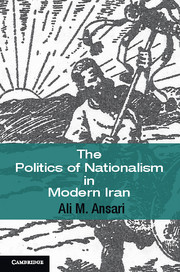Conclusion
Published online by Cambridge University Press: 05 November 2012
Summary
And herein lies political genius, in the identification of an individual with a principle. Given this linkage, the individual must carry off the victory.
Reflecting on the centenary of the Constitutional Revolution in 2006, Iranian academics and political commentators indicated how much had been accomplished and noted, with some anxiety, what had yet to be achieved. The score sheet was not encouraging. The euphoria of the early years of the Reform movement had given way to despondency, and a number conjectured that the latest efforts towards a constitutionally and legally defined state in harmony with its ‘citizens’ would end much the same way as the failure of the Constitutional Movement itself: in dictatorship. Arguably, the situation was even worse. At least the dictatorship of Reza Shah was a product of the Constitutional Revolution; that which was developing under the Islamic Republic was a religious despotism that was explicitly antithetical to the principles of the Constitution. Here was power in its raw form, concentrated in the person of the Supreme Leader, answerable only to God, with the authority to change laws as the faqih saw fit. This was ‘absolute’ power well beyond the aspirations of Iranian monarchs, made all the more real by the tools afforded to the modern state – principally a bureaucracy empowered by modern technology. Yet even here the state apparatus that is emerging bears little resemblance to the institution building that formed the ambitions of the early nationalists. This was not a modern dictatorship, still less a totalitarian state, whatever the pretensions of the leadership; this was a state structure founded on the creation and cultivation of an intensely personal charisma of the ‘leader’ whose access to ‘esoteric wisdom’ was replicated throughout a bureaucracy that eschewed rationalism in favour of superstition. This was sultanism justified and reinforced by charisma.
- Type
- Chapter
- Information
- The Politics of Nationalism in Modern Iran , pp. 285 - 300Publisher: Cambridge University PressPrint publication year: 2012



